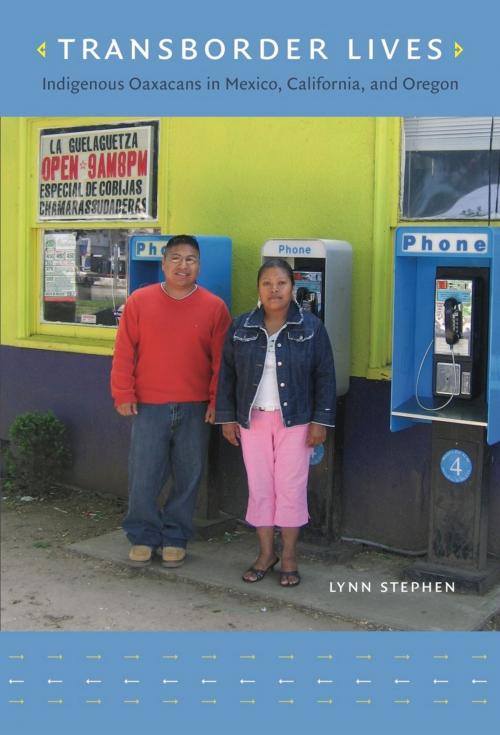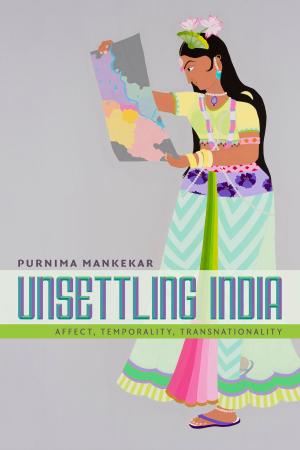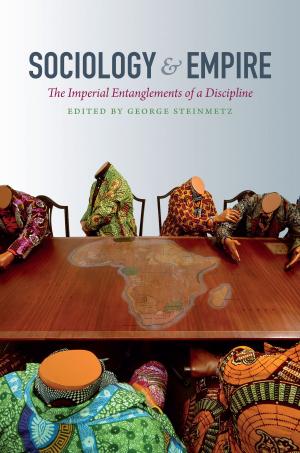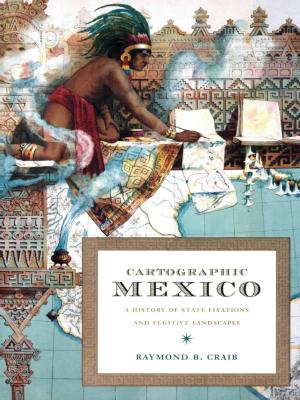Transborder Lives
Indigenous Oaxacans in Mexico, California, and Oregon
Nonfiction, Social & Cultural Studies, Social Science, Cultural Studies, Ethnic Studies, Anthropology| Author: | Lynn Stephen | ISBN: | 9780822389965 |
| Publisher: | Duke University Press | Publication: | June 13, 2007 |
| Imprint: | Duke University Press Books | Language: | English |
| Author: | Lynn Stephen |
| ISBN: | 9780822389965 |
| Publisher: | Duke University Press |
| Publication: | June 13, 2007 |
| Imprint: | Duke University Press Books |
| Language: | English |
Lynn Stephen’s innovative ethnography follows indigenous Mexicans from two towns in the state of Oaxaca—the Mixtec community of San Agustín Atenango and the Zapotec community of Teotitlán del Valle—who periodically leave their homes in Mexico for extended periods of work in California and Oregon. Demonstrating that the line separating Mexico and the United States is only one among the many borders that these migrants repeatedly cross (including national, regional, cultural, ethnic, and class borders and divisions), Stephen advocates an ethnographic framework focused on transborder, rather than transnational, lives. Yet she does not disregard the state: She assesses the impact migration has had on local systems of government in both Mexico and the United States as well as the abilities of states to police and affect transborder communities.
Stephen weaves the personal histories and narratives of indigenous transborder migrants together with explorations of the larger structures that affect their lives. Taking into account U.S. immigration policies and the demands of both commercial agriculture and the service sectors, she chronicles how migrants experience and remember low-wage work in agriculture, landscaping, and childcare and how gender relations in Oaxaca and the United States are reconfigured by migration. She looks at the ways that racial and ethnic hierarchies inherited from the colonial era—hierarchies that debase Mexico’s indigenous groups—are reproduced within heterogeneous Mexican populations in the United States. Stephen provides case studies of four grass-roots organizations in which Mixtec migrants are involved, and she considers specific uses of digital technology by transborder communities. Ultimately Stephen demonstrates that transborder migrants are reshaping notions of territory and politics by developing creative models of governance, education, and economic development as well as ways of maintaining their cultures and languages across geographic distances.
Lynn Stephen’s innovative ethnography follows indigenous Mexicans from two towns in the state of Oaxaca—the Mixtec community of San Agustín Atenango and the Zapotec community of Teotitlán del Valle—who periodically leave their homes in Mexico for extended periods of work in California and Oregon. Demonstrating that the line separating Mexico and the United States is only one among the many borders that these migrants repeatedly cross (including national, regional, cultural, ethnic, and class borders and divisions), Stephen advocates an ethnographic framework focused on transborder, rather than transnational, lives. Yet she does not disregard the state: She assesses the impact migration has had on local systems of government in both Mexico and the United States as well as the abilities of states to police and affect transborder communities.
Stephen weaves the personal histories and narratives of indigenous transborder migrants together with explorations of the larger structures that affect their lives. Taking into account U.S. immigration policies and the demands of both commercial agriculture and the service sectors, she chronicles how migrants experience and remember low-wage work in agriculture, landscaping, and childcare and how gender relations in Oaxaca and the United States are reconfigured by migration. She looks at the ways that racial and ethnic hierarchies inherited from the colonial era—hierarchies that debase Mexico’s indigenous groups—are reproduced within heterogeneous Mexican populations in the United States. Stephen provides case studies of four grass-roots organizations in which Mixtec migrants are involved, and she considers specific uses of digital technology by transborder communities. Ultimately Stephen demonstrates that transborder migrants are reshaping notions of territory and politics by developing creative models of governance, education, and economic development as well as ways of maintaining their cultures and languages across geographic distances.















